Safadi says recognition of Palestinian State ‘urgent necessity’, prerequisite to achieving lasting peace
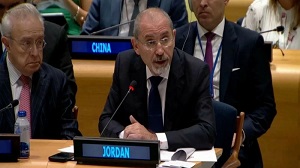
The Jordan Times
AMMAN — Deputy Prime Minister and Minister of Foreign Affairs Ayman Safadi on Monday emphasised that recognition of a Palestinian state has become an “urgent and indispensable requirement” for achieving lasting peace in the region.
Speaking at the opening session of the high-level International Conference for the Peaceful Settlement of the Question of Palestine and the Implementation of the two-State Solution, Safadi reaffirmed that the two-state solution remains the only viable path to a just and comprehensive peace.
“All participants at the conference are united in their commitment to a fair and lasting resolution for the Palestinian people,” Safadi said, stressing that international recognition of a Palestinian state is “no longer optional but essential.”
He noted that the Palestinian leadership has expressed a clear willingness to engage in negotiations based on the two-state framework, but Israel has shown no corresponding commitment. He warned that continued Israeli actions in the occupied Palestinian territories are jeopardizing peace efforts and fueling further instability.
“The ongoing humanitarian catastrophe in Gaza cannot be allowed to persist,” Safadi added, calling for immediate and effective international intervention to end the suffering.
He reiterating that the two-state solution remains the only path forward and Israel is the “primary obstacle to its realisation.”
France told the UN conference, co-chaired with Saudi Arabia Monday, that there is "no alternative" to a two-state solution between Israelis and the Palestinians.
The conference was boycotted by Israel and branded a stunt by Washington.
"Only a political, two-state solution will help respond to the legitimate aspirations of Israelis and Palestinians to live in peace and security. There is no alternative," French Foreign Minister Jean-Noel Barrot said at the start of the three-day meeting.
Days before the conference, French President Emmanuel Macron announced he would formally recognise Palestinian statehood in September, provoking strong opposition from Israel and the United States.
Barrot said that other Western countries will confirm their intention to recognize the state of Palestine during the conference, without confirming which.
"All states have a responsibility to act now," said Palestinian prime minister Mohammad Mustafa at the start of the meeting, calling for an international force to help underwrite Palestinian statehood.
"Recognise the state of Palestine without delay."
France is hoping Britain will follow its lead. More than 200 British members of parliament on Friday voiced support for the idea, but Prime Minister Keir Starmer said that recognition of a Palestinian state "must be part of a wider plan."
United Nations Secretary-General Antonio Guterres said at the meeting "the two-state solution is farther than ever before."
According to an AFP database, at least 142 of the 193 UN member states now recognize the Palestinian state proclaimed by the Palestinian leadership in exile in 1988.
In 1947, a UN General Assembly resolution decided to partition Palestine, then under a British mandate, into Jewish and Arab states. Israel was proclaimed in 1948.
For decades, most UN members have supported a two-state solution with Israel and a Palestinian state existing side-by-side.
But after more than 21 months of war in Gaza, the ongoing expansion of Israeli settlements in the West Bank, and Israeli officials declaring designs to annex occupied territory, it is feared a Palestinian state could become geographically impossible.
Barrot said it would be an "illusion to think that you can get to a lasting ceasefire without having an outline of what's going to happen in Gaza after the end of the war and having a political horizon."
'Israeli unilateral actions'
Beyond facilitating conditions for recognising Palestine, the meeting will focus on three other issues: reform of the Palestinian Authority, disarmament of Hamas and its exclusion from Palestinian public life, and normalization of relations with Israel by Arab states.
However, no new normalisation deals are expected to be announced at the meeting, according to a French diplomatic source.
Saudi Arabia's Foreign Minister Faisal bin Farhan Al Saud said US President Donald Trump could be a "catalyst" to ending the war in Gaza and jump-starting the two-state solution, stressing Riyadh had no plans to normalize relations with Israel.
Following his plea to Trump, the US State Department labeled the three-day event "unproductive and ill-timed," as well as a "publicity stunt" that would make finding peace harder.
Israel and the United States were not taking part in the meeting, amid growing international pressure on Israel to end nearly two years of war in Gaza.
Israeli Ambassador to the UN Danny Danon said "this conference does not promote a solution."
Latest News
-
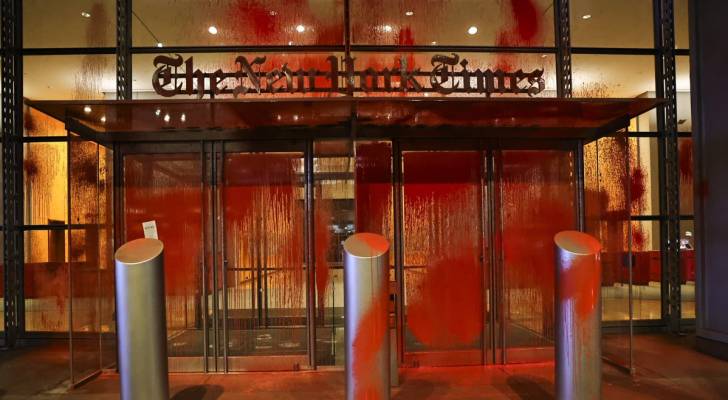 ‘NYT lies, Gaza dies’: Protesters deface New York Times building with red paint
‘NYT lies, Gaza dies’: Protesters deface New York Times building with red paint
-
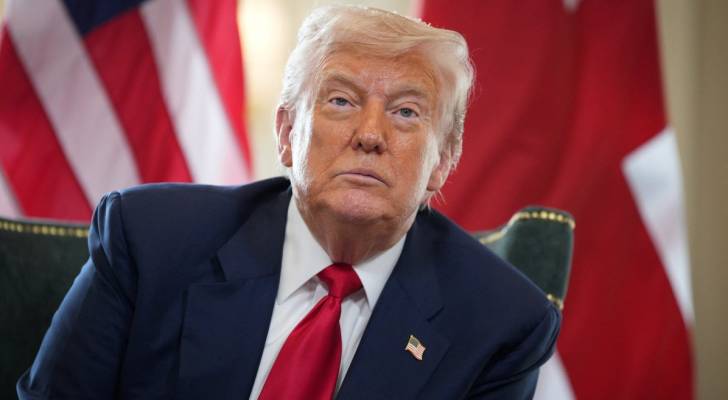 Trump says imposing 25% tariff on Indian imports
Trump says imposing 25% tariff on Indian imports
-
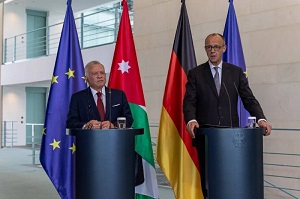 King urges immediate, unified international action to stop spread of starvation, suffering in Gaza
King urges immediate, unified international action to stop spread of starvation, suffering in Gaza
-
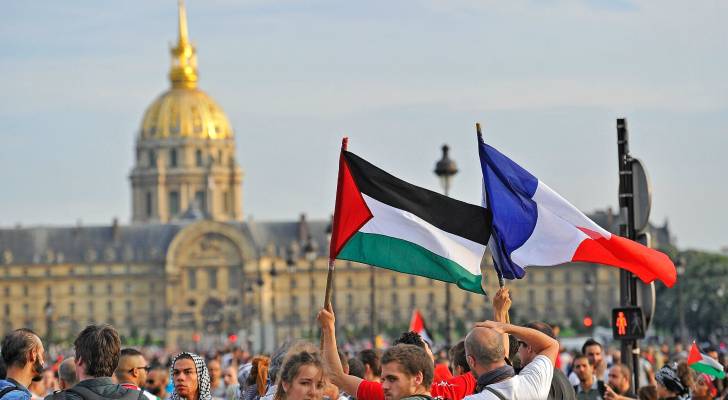 France, 14 other nations urge recognition of Palestinian state
France, 14 other nations urge recognition of Palestinian state
-
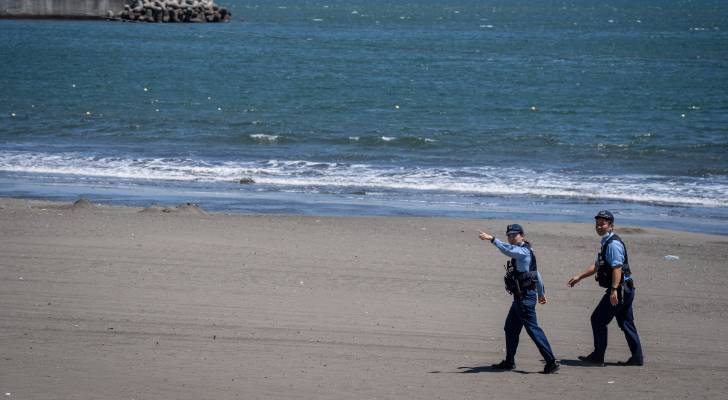 Huge quake off Russia sparks Pacific tsunami warnings
Huge quake off Russia sparks Pacific tsunami warnings